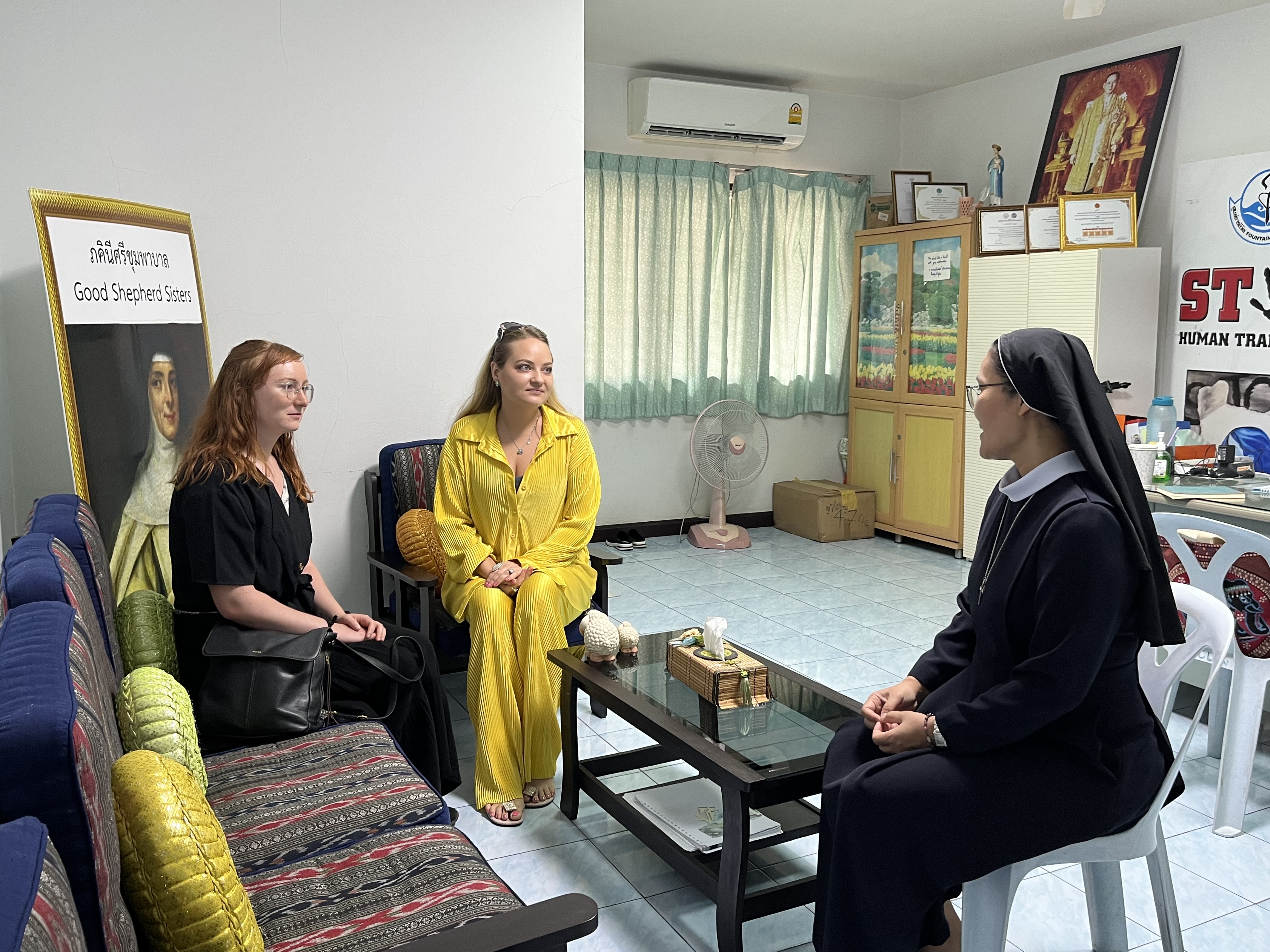Empowering Female Households: Neya Global Partners with Ph.D. Candidate to Research Technology Use in Thailand

We are thrilled to announce the collaboration between Neya Global and Ms. Taylor Robinson, a Ph.D. candidate from Royal Holloway, University of London. Ms. Taylor's visit to the Fountain of Life Women's Center marks the beginning of an exciting research partnership focused on understanding the use of technology by female households in Thailand. This collaboration aims to address the lack of research in the nonprofit sector, particularly concerning technology implementation in developing countries.

In this blog post, we will explore the significance of this research initiative and its potential impact on empowering women in Thailand. Ms. Taylor's research project holds great importance in shedding light on the experiences of female households in utilizing technology. The lack of research in the nonprofit sector regarding technology implementation in developing countries creates a knowledge gap that must be bridged. By partnering with Neya Global, Ms. Taylor aims to fill this gap and generate valuable insights into the challenges and opportunities surrounding technology use among female households in Thailand.

Understanding Barriers and Opportunities: The research partnership will delve into the specific barriers faced by female households in accessing and utilizing technology. This exploration will help identify socioeconomic, cultural, and infrastructural factors that may hinder their access and use. Additionally, the research will highlight opportunities for leveraging technology to enhance education, healthcare, entrepreneurship, and overall empowerment for women in Thailand.
Promoting Digital Inclusion: Digital inclusion plays a pivotal role in achieving gender equality and empowering marginalized communities. By conducting research on technology use in female households, this partnership aims to uncover strategies to bridge the digital divide. The findings will guide Neya Global and other stakeholders in developing targeted initiatives to promote digital literacy, access, and inclusion among women, ensuring that they can fully participate in the digital age.
Enhancing NPO Strategies: The lack of research in the nonprofit sector regarding technology implementation hampers the development of effective strategies to support vulnerable communities. By collaborating with Ms. Taylor, Neya Global aims to advance its knowledge and understanding of how technology can be harnessed to address social issues and uplift marginalized groups. The research findings will inform the organization's programs and initiatives, allowing for more impactful and evidence-based approaches.
Empowering Women for Sustainable Development: Technology has the potential to empower women, catalyze socioeconomic development, and foster sustainable change. By conducting research on the use of technology in female households, Neya Global and Ms. Taylor strive to uncover innovative solutions that can positively impact women's lives. Through their partnership, they aim to contribute to the larger goal of achieving gender equality and sustainable development in Thailand and beyond.

In the realm of research, collaborations between academic researchers and nonprofit organizations hold immense potential for generating meaningful insights and driving positive social change. These partnerships bridge the gap between academia and real-world implementation, allowing researchers to work closely with organizations on the front lines of social issues. When it comes to the field of non-profit research, particularly in areas like technology implementation in developing countries, there is a lack of comprehensive studies.

Let's explore five ways in which researchers can benefit from partnerships with nonprofit organizations, focusing on the importance of such collaborations for addressing critical social challenges and promoting sustainable change
- Access to Real-World Data and Context: Researchers partnering with nonprofit organizations gain access to valuable real-world data and firsthand experiences from the communities they serve. This access enables researchers to gather more accurate and comprehensive data, providing a solid foundation for their studies and ensuring the findings are relevant and applicable to the specific population being studied.
- Collaborative Expertise and Resources: Nonprofit organizations often have a deep understanding of the issues they work on and possess expertise in community engagement and program implementation. Partnering with nonprofits allows researchers to tap into this expertise, gaining insights and knowledge that can enhance their research design, methodology, and overall project implementation. Additionally, nonprofits may provide resources such as funding, access to facilities, and logistical support, further strengthening the research partnership.
- Increased Research Impact and Relevance: Collaboration with nonprofit organizations can enhance the impact and relevance of research findings. By directly engaging with communities and addressing pressing social issues, researchers can ensure that their work is meaningful and has practical applications. The partnership allows researchers to align their research objectives with the needs and priorities of the nonprofit organization and the communities they serve, increasing the potential for positive social change.
- Amplified Dissemination and Advocacy: Nonprofit organizations often have established networks, platforms, and communication channels through which they disseminate information and advocate for social causes. Partnering with a nonprofit provides researchers with a broader audience and the opportunity to amplify their research findings beyond academic circles. This collaboration enables researchers to engage with policymakers, practitioners, and the general public, fostering dialogue and influencing positive policy changes based on the research outcomes.
- Long-term Sustainability and Implementation: Nonprofit organizations are committed to creating sustainable change and implementing solutions that address social issues. Researchers partnering with nonprofits can contribute to the development of evidence-based interventions and strategies that have a higher likelihood of being implemented and sustained in the long run. This collaboration ensures that research findings are translated into actionable steps, creating a positive impact on the communities served by the nonprofit organization.
By fostering partnerships between researchers and nonprofit organizations, both parties can benefit from each other's expertise, resources, and networks, ultimately leading to more impactful research outcomes and positive social change.
Stay tuned for updates on this exciting research journey and its potential impact on the lives of women in Thailand.









